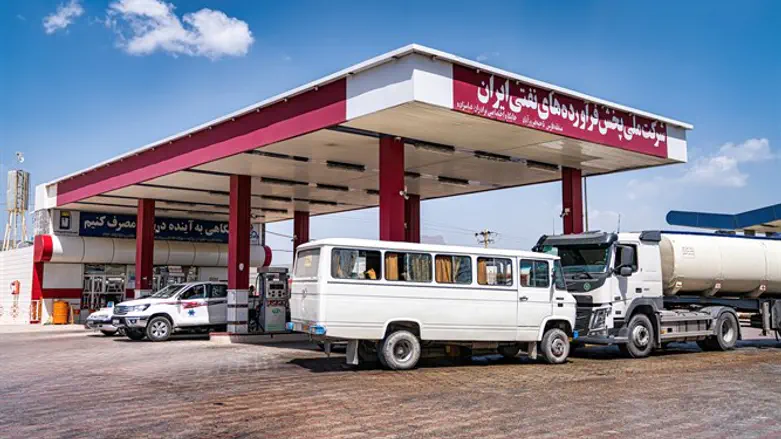
Iran's fuel distribution system resumed full operation on Tuesday, a week after it was paralyzed by a cyberattack, authorities said.
"The country's 4 300 service stations are once again connected to the central fuel distribution system," the spokesperson of the Iranian National Oil Product Distribution Company, Fatemeh Kahi, said in a statement quoted by AFP.
"From now on, all the service stations will be able to supply subsidized petrol using the digital cards," Kahi added.
The October 26 attack resulted in disruptions in fuel distribution across the country, as cars lined up outside of gas stations throughout the country, waiting to fuel up as an outage in a government fuel management system interfered with serve at stations.
AP reported that Iranian motorists were lined up outside of gas stations after the government fuel subsidy system used by most Iranians to purchase gas suffered a major outage, creating massive delays and, in many cases, leading to total closures at the pumps.
According to the ISNA news agency, motorists attempting to use the government fuel subsidy cards were flashed a message indicating the subsidy system had been taken down as part of a cyberattack.
On Saturday, Iran's civil defense chief accused Israel and the United States of being the likely culprits behind the cyberattack.
"We are still unable to say forensically, but analytically I believe it was carried out by the Zionist Regime, the Americans and their agents," Gholamreza Jalali, head of civil defense which is in charge of cyber security, said, according to Reuters.
Iran has been hit by several cyberattacks in recent years. In July, a cyberattack targeted Iran’s railroad system, causing widespread chaos with hundreds of trains delayed or canceled.
While initially many fingers were pointed at Israel, an investigation by Israeli-American cybersecurity company Check Point Software Technologies concluded that a mysterious group opposed to the Iranian government was most likely behind the attack.
Last October, Iranian officials confirmed the country’s Port Authority had been hit in a cyberattack, which was attributed to “sworn enemies” who “failed to achieve their goals” of hitting Iran’s economy through sanctions.
In December of 2019, Iran’s telecommunications minister said the country had defused a cyberattack which was “aimed at spying on government intelligence”.
Previously, it was reported that the US had launched a secret cyberattack against Iran. The attack reportedly wiped out a critical database used by Iran’s paramilitary arm to plot attacks against oil tankers and degraded Tehran’s ability to covertly target shipping traffic in the Persian Gulf.

